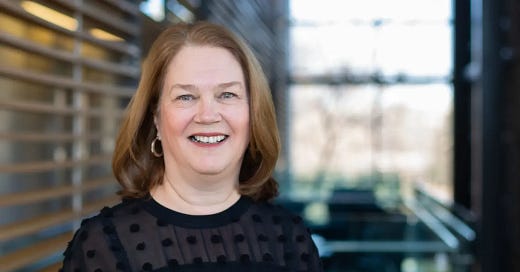We’ve got Jane Philpott back on the pod this week. Since she came on in April to talk about her book, she’s been busy. And she’s about to get busier.
The former health minister in Justin Trudeau’s first government has been named chair of a new “primary care action team” for the Ontario government. Her goal is to “connect every person in Ontario to primary health care within the next five years.” Since every government from Confederation to now has not gotten that done, it’ll be interesting to see whether Philpott — and whichever government Ontario has in five years — can do better.
Since Philpott was a Liberal nine years ago, and spoke to an Ontario Liberal policy convention only a month before her new appointment — and since that appointment came from the Conservative government of Ontario Premier Doug Ford — her appointment has generated industrial quantities of buzz at Queen’s Park and on Parliament Hill. She intended none of that, and she points out that her appointment is non-partisan. Ontario’s new provincial Liberal leader Bonnie Crombie — who, it can be assumed, would have liked Philpott in her corner rather than on the provincial payroll — suggested she might be likelier to implement Philpott’s work than Ford would, which is definitely a case of attempting to make lemonade from lemons, but it had the effect of reinforcing Philpott’s non-partisan stance.
Philpott’s going to try to implement ideas she discussed in her book Health For All, which said everybody in Canada should have access to a local interdisciplinary health team. It’s ambitious, and one of my concerns when we talked in the spring was that a federal government would be terribly positioned to make it happen, because all the organizational challenges and the jurisdictional primacy would be in the provinces. Well, there’s that problem solved, with Philpott’s provincial-level appointment. We’ll see about all the other problems.
I’ve seen stacks of polls suggesting Canadians take health care very seriously but that it doesn’t often become an election issue because, in a lot of provinces at various times, Canadians haven’t always been sure a change in party would improve governments’ performance. Can fresh thinking produce fresh results? One can always hope. Good on Philpott for trying. I suspect I’ll be checking in with her before her work is done.
You can listen to this episode on Apple Podcasts and a bunch of other platforms via the “Listen On” button that you can see at the top of this post when you view it on your desktop browser. If you listen on a podcast platform, hit “Like” and “Subscribe” buttons, and leave a good review, to help spread the word.
You can read a (machine-generated) transcript of this week’s episode via the "Transcript” button at the top of this page when you view it on your desktop browser.
I am grateful to be the Max Bell Foundation Senior Fellow at McGill University, the principal patron of this podcast. Antica Productions turns these interviews into a podcast every week. Kevin Breit wrote and performed the theme music. Andy Milne plays it on piano at the end of each episode. Thanks to all of them and to you. Please tell your friends to subscribe to The Paul Wells Show on their favourite podcast app, or here on the newsletter.
Last week’s episode of the podcast, with US political writer Ross Barkan on the remarkable Presidential election results, has been one of the most-listened episodes in the brief history of The Paul Wells Show. If you missed it, catch up here:
The full podcast archive, now more than 60 episodes of interviews with newsmakers, creators and writers, is always here.















Share this post